Flowers bring colour and joy to your wedding and are a key component that we know you’ll want to look amazing. Whether on the table or in large floor vases, flowers are living decoration and add scent as well as texture to your wedding styling. If you decide to take them home afterward, you’ll want them to live as long as possible so you can continue to enjoy them long after the big day. Here are a few tricks to keep flowers fresh longer.
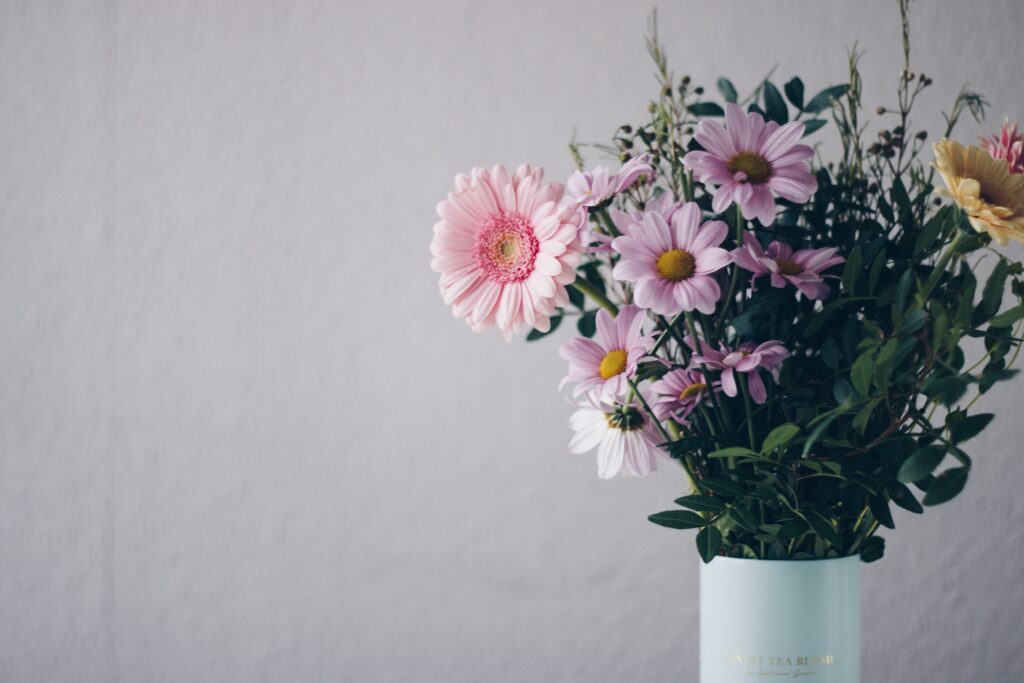
Make a right choice
Choose flowers that are the least susceptible to room conditions. Champions in their ability to adapt to different temperatures and environmental conditions are chrysanthemums. With proper care, they can decorate your home for 3 to 4 weeks.
No less hardy are carnations. There are many shades of this plant and are easily available – plus they are back in fashion after a few years in the wilderness. Choose them if you want a delicate bouquet that will please your eyes for at least 3 weeks.
Even after 2 weeks flowers such as freesias, hyacinths, orchids, asters, or tulips delivery in London, will be in tiptop condition. Daisies, irises, and peonies are fussier, if not cared for and in the wrong conditions, they will wither after 1.5 weeks.
Clean the vase properly
Surely you don’t want to drink from a dirty water glass either. So make sure the container you keep the flowers in is properly cleaned. Meaning, don’t just take out the last flowers and put in the new ones. Because even the smallest residue of dirt can have an enormous effect on the water quality and cause the sensitive plants to age more quickly. Scrub the vase with detergent and a sponge. If you have a very narrow vase, dishwashing brushes can help with cleaning.
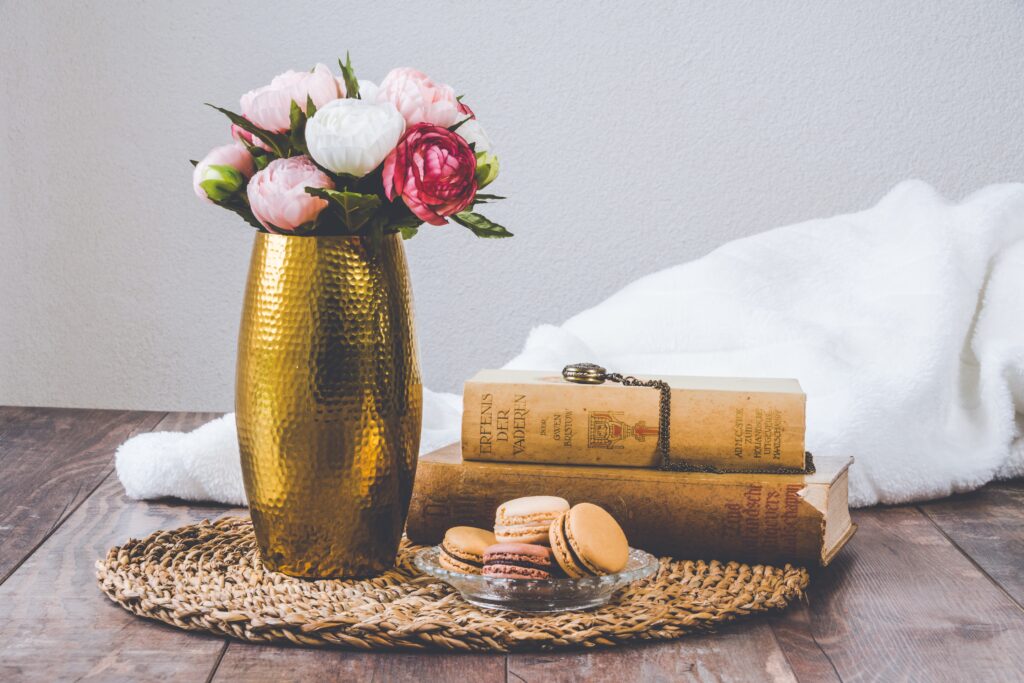
Cut flowers correctly
Did you know that you only cut flowers with hard stems at an angle? This includes roses and lilies, for example. All flowers with soft stems, such as tulips or gerberas, are cut straight. You can easily find out whether the stem is hard or soft by pressing it in with your fingernail. Especially with tied bouquets, there are often woody elements that are even firmer than roses. You can simply tap these open lightly with a knife. This breaks up the outer shell and the water can be better absorbed.
Now before it goes into the vase, you should remove the leaves from the stems that would end up underwater afterward. Otherwise, they could release substances, which would speed up the rotting process and negatively affect the flowers. Remove all the leaves in the lower third of the flower stem. To reduce moisture loss through evaporation, you should cut off some leaves in the upper part of the stem as well – this way, the water can be used mainly to feed the petals.
In the past, people advised tapping thick, woody stems of roses and lilacs flat with a hammer before placing them in the vase. However, this does not help – on the contrary, the frayed base of the stem interferes with water absorption.
Choose the right location
The environment in which you place your bouquet also matters. After all, drafts and direct sunlight can negatively affect the shelf life of cut flowers. The bouquet likes a bright location without direct sunlight, not too close to windows or radiators. Generally, cut plants feel better in cool rooms. Another tip: fruit emits ethylene gas, which accelerates aging. Although they might seem like a nice combination, never place your flowers next to a fruit basket.
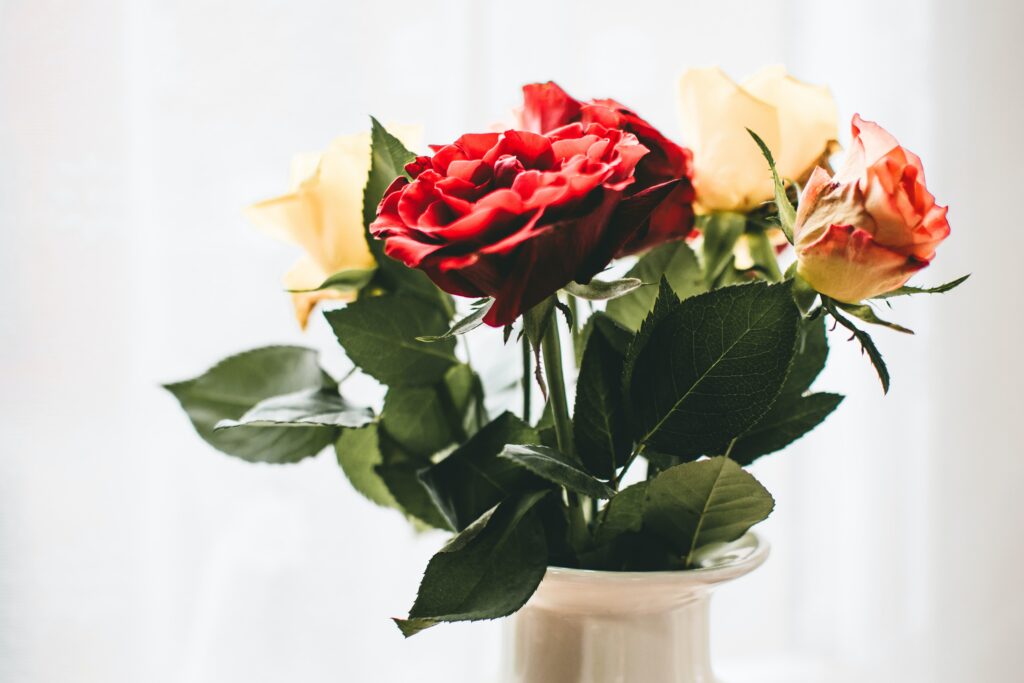
Prepare the water
Water from the kettle is particularly suitable because it contains fewer minerals that could interfere with absorption. Do not use cold water from the tap! In the first hours after cutting, the plant is particularly thirsty, so get the bouquet in the water as fast as possible.
In order to improve moisture absorption, the flower water should be renewed daily, if possible, and the stems should be re-cut. This is because germs form very quickly in the water, clogging the conduit pathways.
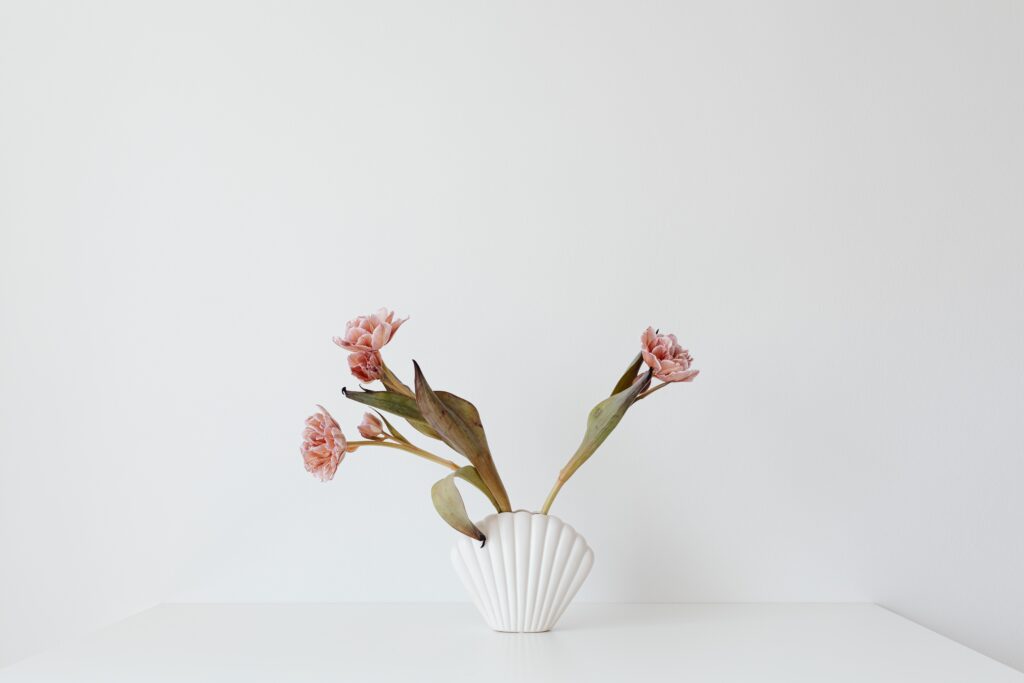
Lifehacks and home remedies for longer fresh cut flowers
Most florists will give you a small sachet with your tied bouquet. The powder that you find inside, keeps the water free of bacteria longer and provides nutrients. If you change the water daily and use the tips we described above, it is not really necessary. However, we would like to share with you a few additional home remedies that can help keep flowers fresh longer even without daily water changes.
Copper coins, which are 1 to 5 cents, have an antibacterial effect due to their heavy metal content. This extends the life of cut flowers rather slightly. Sugar can also keep fresh flowers looking beautiful longer because sugar provides energy. Caution is advised here because too much sugar can flip the aging process into overdrive.
Aspirin is also said to have a life-prolonging effect on cut flowers. But at this point we have to disappoint you: aspirin might clean the water but does nothing to the flowers.
By following all of the above methods, tips, and tricks you will significantly prolong the life of the flowers. Of course, every plant is different and while one type can stay fresh for weeks, another will wither in a matter of days, simply because it requires certain conditions that can not be recreated at home. However, if you put time and energy into taking care of a flower, it will keep its fresh look for as long as it can.
IF YOU FOUND THIS USEFUL WHY NOT PIN IT?
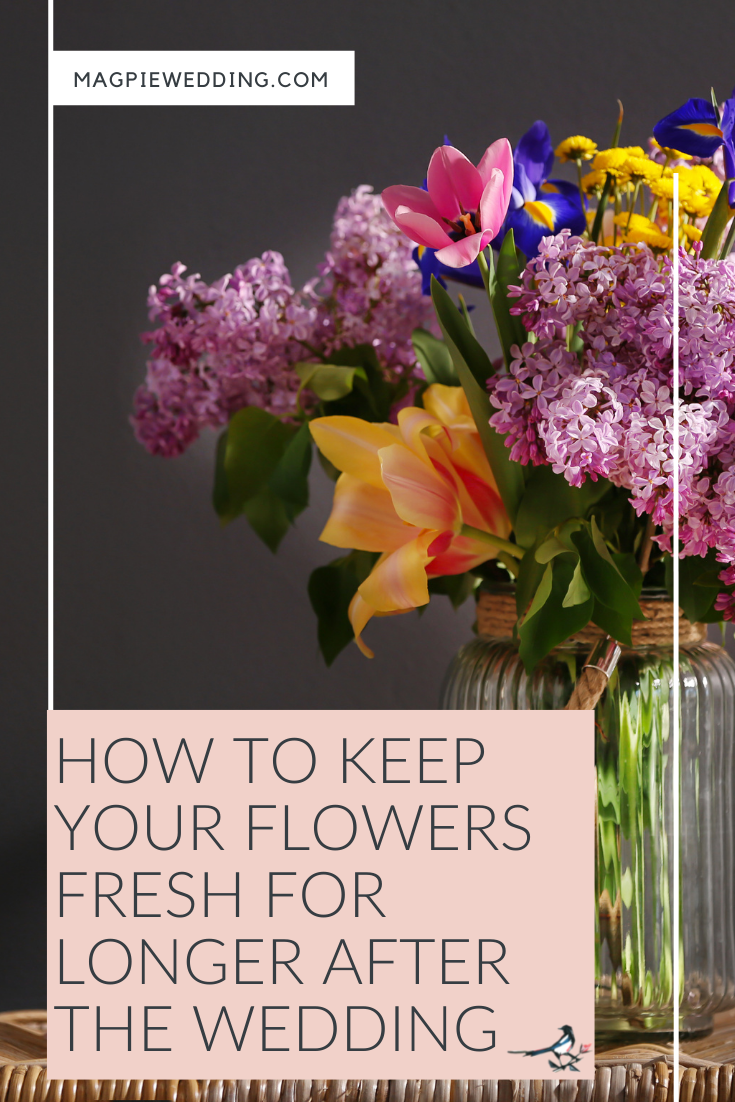
This is a collaborative post




